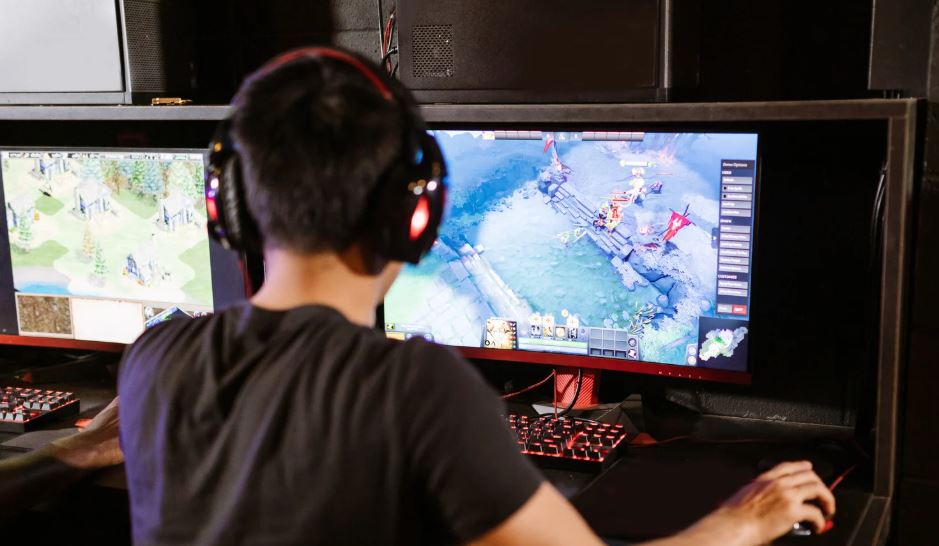Table of Contents
ToggleThe line between technology and entertainment has never felt thinner. Music, film, gaming, and even live performances are being shaped in real time by algorithms that watch, learn, and adjust.
AI is now the silent partner behind some of the most captivating digital moments, recommending the next song, editing the next video, or creating characters that respond to the way you play.
Smarter Games, Sharper Experiences
Nowhere is this shift more visible than in gaming. Small teams with smart tech are reshaping what it means to play. Several of the best casino sites not on GamStop are exploring tools that personalise game suggestions, detect player mood, and tweak the experience in subtle ways.
These platforms are often less restricted by traditional models and have become testing grounds for features that may later shape the wider industry. You’ll find AI working quietly behind the scenes, adjusting layouts, timing, or challenges without users ever needing to click a menu.
Beyond Personalization: The New Creative Partner
Across entertainment genres, AI is transforming how stories are told and how audiences take part. It’s not only about personalisation. It’s about prediction.
In film production, machine learning tools are now being used to scan early scripts and compare them to thousands of others, flagging which plot points might land well or fall flat. This helps creators shape content that keeps viewers watching.
In streaming, there’s another kind of shift. Some platforms now rely on AI to suggest edits to uploaded content before it even goes live. Based on past audience reactions, it can highlight dull intros or repetitive sections. Creators can work faster without losing quality, and audiences get tighter, more engaging material.

Games are becoming smarter, too. In single-player titles, AI doesn’t just control enemy movements; it now builds entire levels on the fly, reacting to how someone plays. If a user struggles, the game might slow up. If they breeze through, the challenge can increase. This flexibility turns passive content into a living experience.
AI Startups Changing Entertainment and Gaming
Startups have a big part to play in all of this. They aren’t tied to legacy systems or slow approval cycles. If something doesn’t work, it gets dropped. If it works, it gets better quickly.
One indie team recently launched a game where the soundtrack changes based on how a user handles dialogue with in-game characters. There’s no ‘right’ path. The experience shifts subtly with each choice, making every run feel personal.
Live events are also being reshaped by this new tech. One company has built an AI tool that listens to crowd sounds during livestreams, feeding back data to performers in real time. If energy dips, they know to switch up the pace. It doesn’t replace instinct, but it offers extra eyes or ears on the audience.
Meanwhile, in music production, some apps can now create short melody loops using nothing more than a user’s mood input. It’s fast, it’s adaptive, and it’s giving solo artists tools that were once reserved for big studios. The result? More music, made faster, by more people.
Then there’s content moderation. AI tools are being used in online games to scan chat logs and flag toxic language instantly. They don’t rely on user reports. They act immediately, reducing harm and keeping play safe. It’s one of the clearest examples of how machine learning can improve digital spaces without making noise about it.

Even in the background, AI has a place. Tools are now being used to analyse market trends and predict which types of content might succeed months down the line. This gives creators a head start on ideas, while letting them stay ahead of fast-moving shifts in taste.
This wave of AI development is being driven largely by startups. Their smaller size and tighter focus mean they can take chances.
They can launch tools in beta, gather quick feedback, and evolve in days, not quarters. What might seem like small features now, an adaptive playlist here, a self-editing script there, may quietly become the standard way things work in a few years.
So much of this tech works without fanfare. There are no flashing banners saying, “AI did this.” That’s the point. It’s meant to serve the story, the song, the moment, not take it over.
From gaming platforms to music mixers and streaming tools, the best ideas are the ones that disappear into the background while making everything feel sharper, quicker, more alive.
AI doesn’t need to replace creativity. It just helps clear the path so creators can get on with the good stuff.




